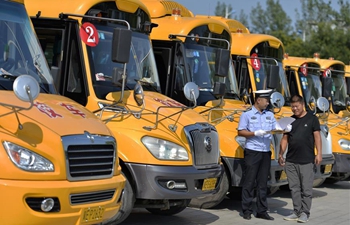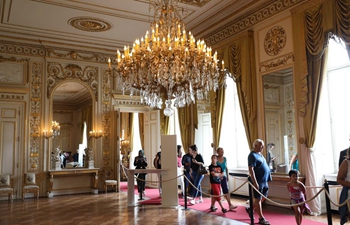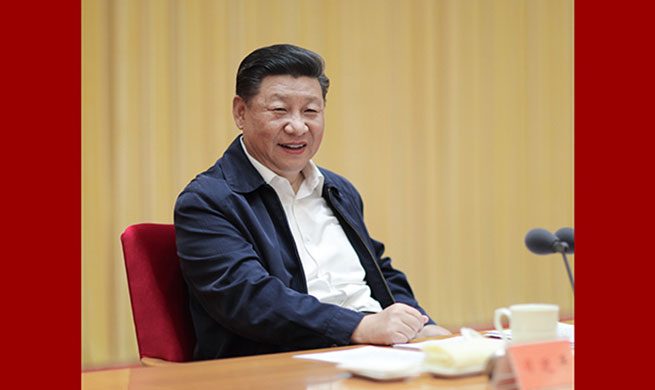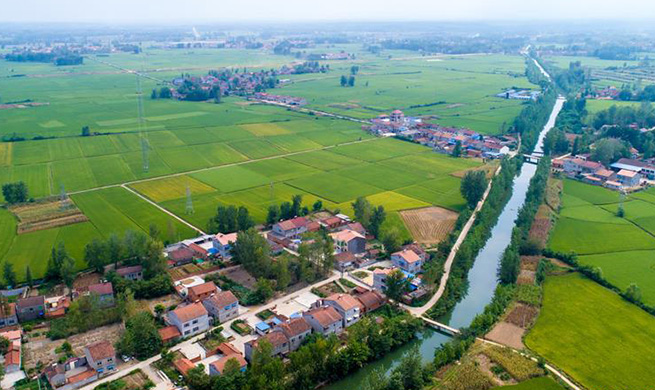LONDON, Aug. 23 (Xinhua) -- British shoppers will face slower and higher credit card payment costs in the event of a no-deal Brexit, the British government admitted on Thursday.
The revelation was included in one of 25 papers published Thursday that detail measures to try to mitigate turmoil from crashing out of the European Union (EU).
British consumers would face slower and more costly credit card payments when they buy EU products, and British citizens living abroad could lose access to their bank accounts in the event of a no-deal Brexit, the government warned.
No deal means the collapse of the ongoing talks between London and Brussels on how Britain will leave the regional bloc in March 2019.
A document on banking, insurance and other financial services said: "The cost of card payments between the UK and EU will likely increase, and these cross-border payments will no longer be covered by the surcharging ban."
Customers of UK banks living in the EU "may lose the ability to access lending and deposit services, and insurance contracts," the paper said.
Meanwhile, British businesses are warned that if the UK leaves without a deal, "the free circulation of goods between the UK and EU would cease."
Under an EU-wide clampdown, it became unlawful in January for retailers to charge additional fees when someone uses a particular credit or debit card, or another system such as PayPal, to make a purchase.
Adam Marshall, director general of the British Chambers of Commerce, said: "There are some alarm bells for business here."
"The government is saying that firms could face higher costs and slower processing for their euro transactions in a no deal scenario, and that surcharges for card payments could make a comeback," he said. "Both of these real-world business issues need to be avoided if at all possible."
The contingency plans urge Britons not to be "alarmed" by the risks of a no-deal Brexit.
British Brexit Secretary Dominic Raab released the first batch of about 80 papers, covering topics such as how the City can prepare for any turmoil, avoiding border delays at Dover, and ensuring medicine supplies do not run out.
Britain would take "unilateral action" in the event of a no-deal Brexit to keep trade and transport flowing freely, Raab pledged Thursday.
In his first major speech as the Brexit secretary, he said that the British government would not risk triggering a tit-for-tat battle with Brussels by imposing new border checks or travel restrictions.
"People and businesses should not be alarmed by no-deal planning and preparation, nor read into it any pessimism," the documents urged. "Instead they should be reassured that we are taking a responsible approach, ensuring the UK's exit can be as smooth as possible in all scenarios."
Labour accused the government of going into "panic mode," as calls were made for a no deal to be ruled out amid worries that a bungled Brexit would send the pound into a nosedive, lead to long border delays and risk food and medicine shortages.
Addressing more general concerns, Raab told BBC Radio 4's Today programme that "There are some risks here ... but let's not have the risks blown out of proportion and out of context."
"These technical notices and the ones that will follow are a sensible, measured and proportionate approach to minimising the impact of no deal on British firms, citizens, charities and public bodies."
Raab insisted he was still confident that a trade deal with Brussels would be reached.













